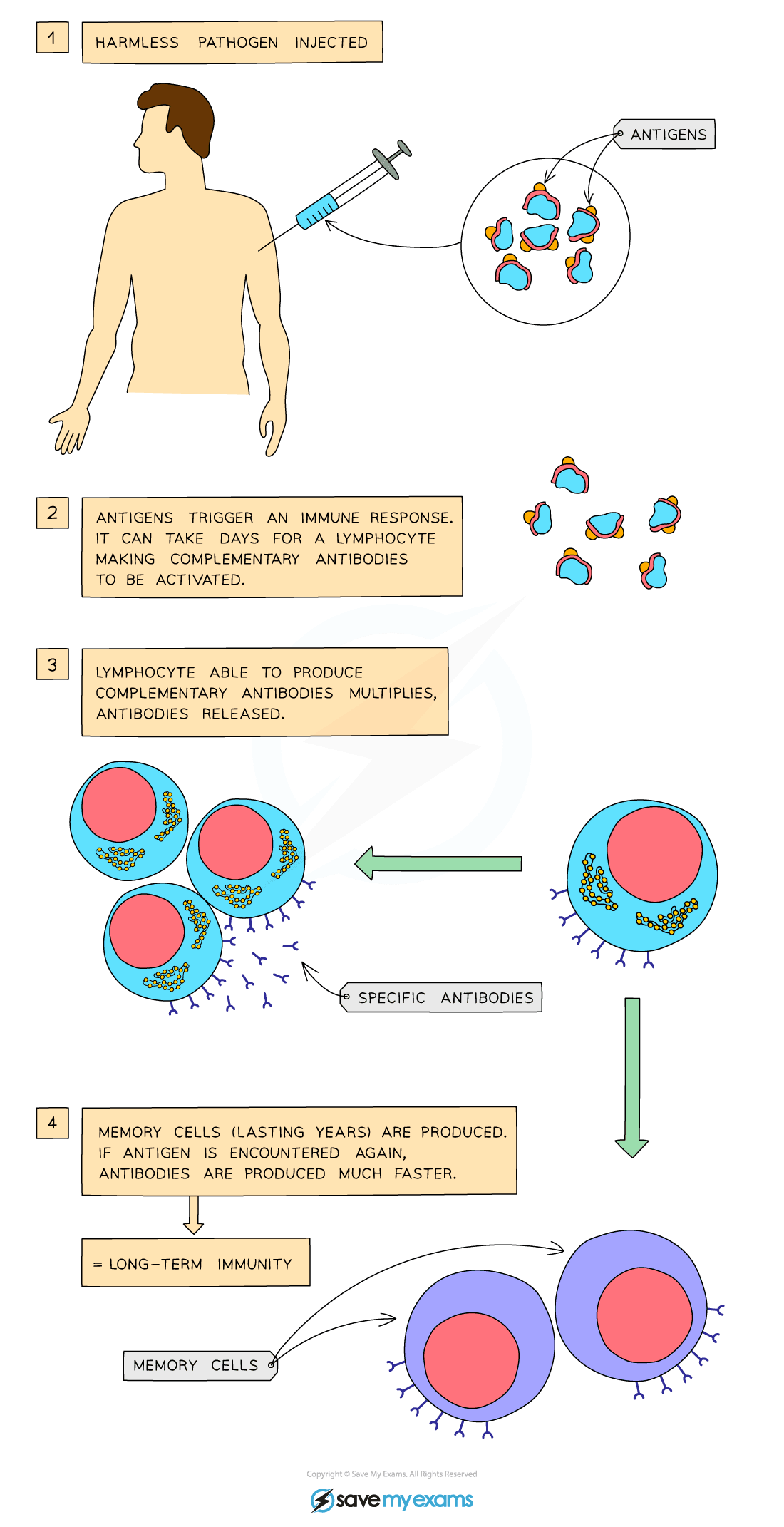Vaccination
- Vaccines are used to induce immunity to infectious diseases
- A vaccine contains harmless versions of a pathogen
- There are several different methods by which scientists ensure that vaccines contain harmless pathogens such as:
- Killing the pathogen
- Making the pathogen unable to grow or divide (attenuated vaccine)
- Using fragments of pathogens, which include the necessary antigens (rather than whole cells)
- A vaccine may be administered orally, nasally or via an injection
How vaccines work
- Once in the bloodstream, the antigens contained within the vaccine can trigger an immune response in the following way:
- Lymphocytes recognise the antigens in the bloodstream
- The activated lymphocytes produce antibodies specific to the antigen encountered
- Memory cells and antibodies subsequently remain circulating in the blood stream
The process of long-term immunity by vaccination
- Future infection by the same pathogen will trigger a response that is much faster and much larger compared to the initial response
- Due to the rapid nature of the response, the pathogen is unable to cause disease and the individual is said to be immune
Graph showing the number of measles antibodies in the blood following vaccination. The secondary response is much faster and a greater number of antibodies are produced.
Advantages & Disadvantages of Vaccination
Advantages of vaccination
- Vaccines not only protect the vaccinated individuals, they also reduce the likelihood that an infected individual will spread the pathogen to others
- If a large proportion of the population is vaccinated, it is unlikely that an unvaccinated individual will become infected with the pathogen
- This concept is referred to as herd immunity and can prevent the spread of the disease
- Vaccines have reduced the cases of certain diseases drastically or even eradicated many diseases worldwide
- This includes smallpox, measles, mumps and tetanus amongst many others
- There are hopes for the future eradication of several other diseases through vaccination programs
- This includes polio, HIV, malaria and of course COVID-19
Disadvantages of vaccinations
- There are some disadvantages to vaccinations that reduce how effective vaccination programs can be
- Mutations in the pathogen’s DNA/RNA can result in significant changes to the antigen of the pathogen meaning that lymphocytes no longer recognise the pathogen
- Vaccination doesnt always give immunity
- Side-effects of vaccinations can reduce the uptake in the population




